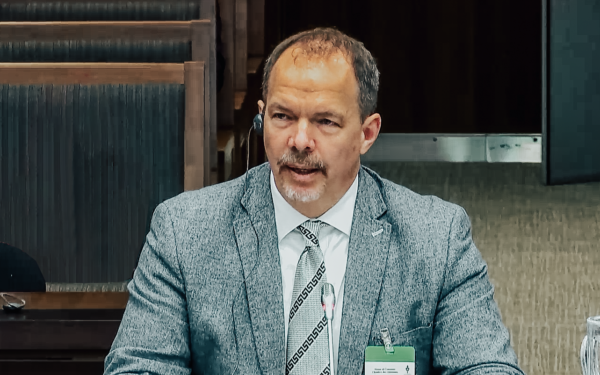CIRA’s goal is to support projects that help create a trusted internet for Canadians. This year, we’re funding projects in four areas: infrastructure, digital literacy, cybersecurity and community leadership.
Since 2014, CIRA’s flagship Community Investment Program granting initiative has provided $6.7 million in funding for 151 projects across Canada.
It goes without saying that, over the past six years, the way Canadians access, connect and learn online has changed significantly. To help keep pace with this change, we’ve made significant updates to our Community Investment Program strategy to ensure it continues to address pressing gaps in Canada’s internet.
As a result, this year’s Community Investment program grant cycle features three key changes that you should know about before you begin your application:
1. We have identified new funding areas.
CIRA’s goal is to support projects that help create a trusted internet for Canadians, so this year, we’re funding projects in four areas: infrastructure, digital literacy, cybersecurity and community leadership.
Infrastructure includes connectivity research, core infrastructure, last-mile connectivity services and operational solutions that increase performance, lower costs and improve data sovereignty.
Through digital literacy, we fund research, educational frameworks, learning resources, tools and training programs to improve Canadians’ digital literacy knowledge and skills.
New this year is cybersecurity, where we will fund research, educational frameworks, tools and training programs that promote Canadians’ online safety.
Finally, community leadership includes funding for events and policy research that broaden public awareness and understanding of domestic internet policy and governance.
For those who are familiar with CIRA’s Community Investment Program, or have applied in the past, you may have noticed that the ‘online services’ category is no longer listed. Historically this category included projects like online apps and platforms that address social, economic and environmental needs. In order to make room for more infrastructure, digital literacy, cybersecurity and community leadership projects, we have decided we will not be funding online services this year.
2. We want to support students and northern, rural and Indigenous communities.
The Community Investment Program is interested in supporting digital projects that benefit underserved areas and communities in Canada. While we accept project applications that serve all Canadians, this year preference will be given to initiatives that benefit:
- Students (kindergarten to grade 12 and post-secondary)
- Northern, rural and Indigenous communities.
3. The deadline is February 25, 2020 at 2 p.m. (ET)
The deadline is earlier this year – Tuesday, February 25! Your completed Community Investment Program online application form with all required attachments, must be received by Tuesday, February 25, 2020 at 2 pm ET (please take special note of the time zone).
Bonus tip
Your application must successfully pass our internal check for organization eligibility, alignment with funding areas and completeness of documentation before the deadline, if it is to move forward to the Evaluation Committee.
In a typical year, approximately 50 per cent of applications are returned due to missing or incomplete information – and corrections must be submitted by the February 25 closing date. So be sure to submit your application early in case there is any follow-up regarding missing or incomplete information – otherwise the application cannot be considered.
With these changes in mind, you might still be wondering if your project is a good fit. Learn more about how to apply for a grant here, and consider joining our webinar for 2020 applications on January 23rd at 1PM ET.
Erica works in corporate communications at CIRA. Her background is in writing and community relations in the non-profit sector. She is a graduate of Carleton University’s journalism program.




